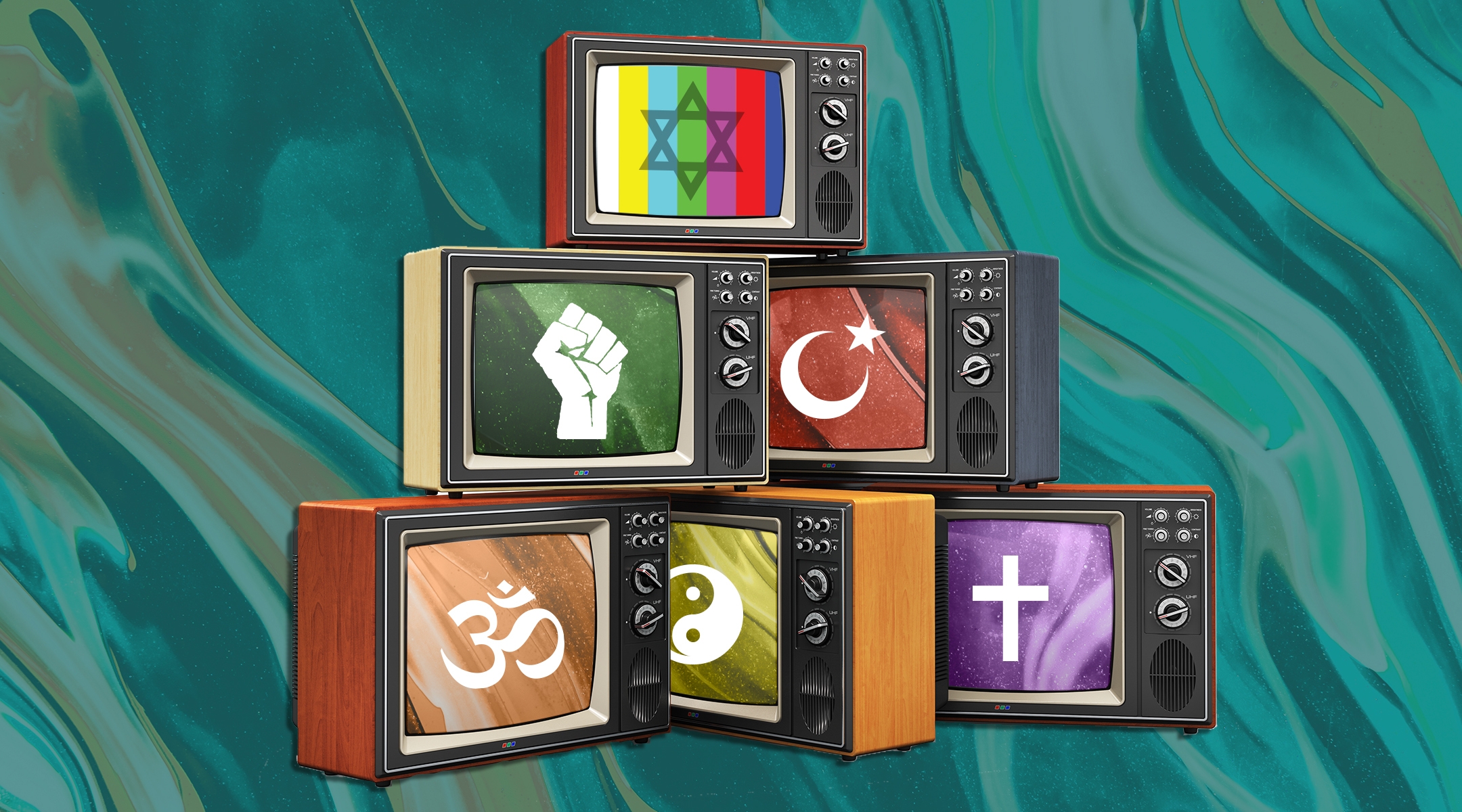This article was produced as part of JTA’s Teen Journalism Fellowship, a program that works with Jewish teens around the world to report on issues that affect their lives.
(JTA) — From who is behind the camera to who is in front of it, Hollywood receives a lot of attention for its representation of minority and marginalized communities, including women, LGBTQ community members and people of color. And yet, some Jewish teens say they have rarely seen discussion of how their experiences and culture are represented in popular culture and modern movies. The dearth of such representation and the apathy surrounding it leaves many Jewish teens feeling as though they are undervalued by the American entertainment industry.
The Jewish Telegraphic Agency sat down with five Jewish teens from across the U.S. to hear their perspective on the representation of Jews in films and how they relate to it. The conversation focused on what the teens saw as media stereotyping versus authentic portrayal of their culture. This, in turn, reveals the effects of Jewish teen portrayals in film on today’s Jewish teenagers themselves.
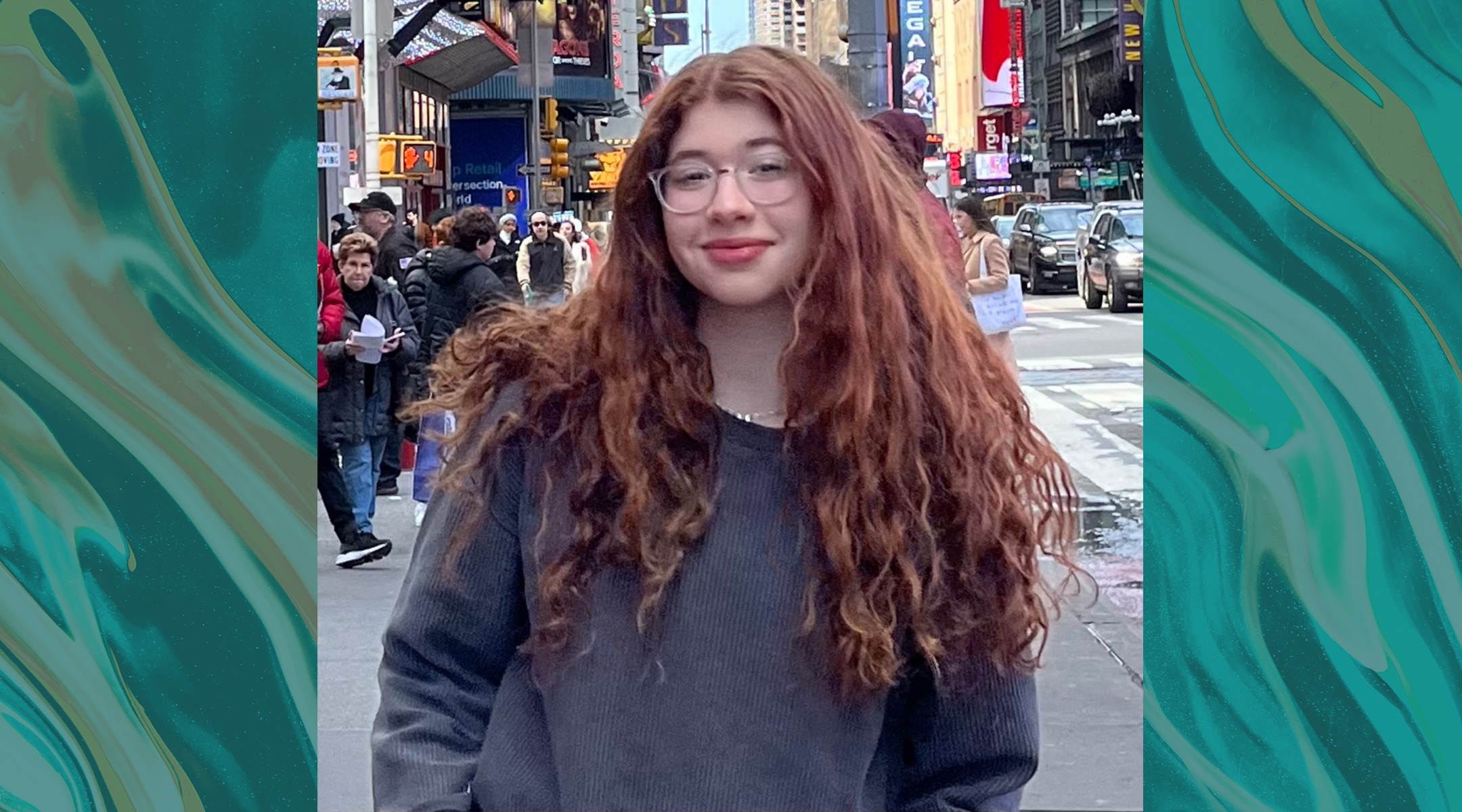
Emmie Wolf-Dubin (Courtesy)
JTA: What’s the Jewish character you relate to most in any movie?
Emmie Wolf-Dubin, 16, Nashville: I would love to be able to answer this question, but unfortunately other than in movies specifically for Jews which are usually just Holocaust-based, I haven’t seen any strong Jewish characters, which is upsetting. I can’t say that I have a favorite Jewish character because I don’t see any Jewish characters.
Libby Peckman, 15, Highland Park, New Jersey: I agree that I’ve seen some Jewish teenage girls in some different movies. But, there’s not enough where I can relate to one specifically. There’s only a few specific people and they’re all similar to each other.
Davin Haley, 14, Philadelphia: I get a sense of representation when a Jewish character even mentions a holiday. You always see a Christmas special, but I don’t see Hanukkah anywhere. But, in “The Goldbergs” there’s a Hanukkah episode and that’s so cool because I could relate to that.
JTA: What is your first memory of seeing a Jewish teen — or any Jewish character at all — in a movie?
Emmanuelle Kramer, 16, Philadelphia: If anyone’s seen “Phineas and Ferb,” there’s Isabella, who’s half Mexican and also half Jewish. As someone who is mixed, Jewish and Asian, it was cool to see a character who is mixed like me in a TV show. There was an episode where they went to her family restaurant and there was a combination of Jewish foods and Mexican foods. It was cool to see how they actually took time to go and put in this cross of culture and represent this character. I don’t see a lot of Jewish characters to begin with, so it was great to see this.
Isaac Shalit, 15, Austin, Texas: I remember maybe when I was 10, I watched “Mean Girls” and I sort of liked it. The girl who got the gift for Hanukkah — I was rooting for her the entire time because she was Jewish.
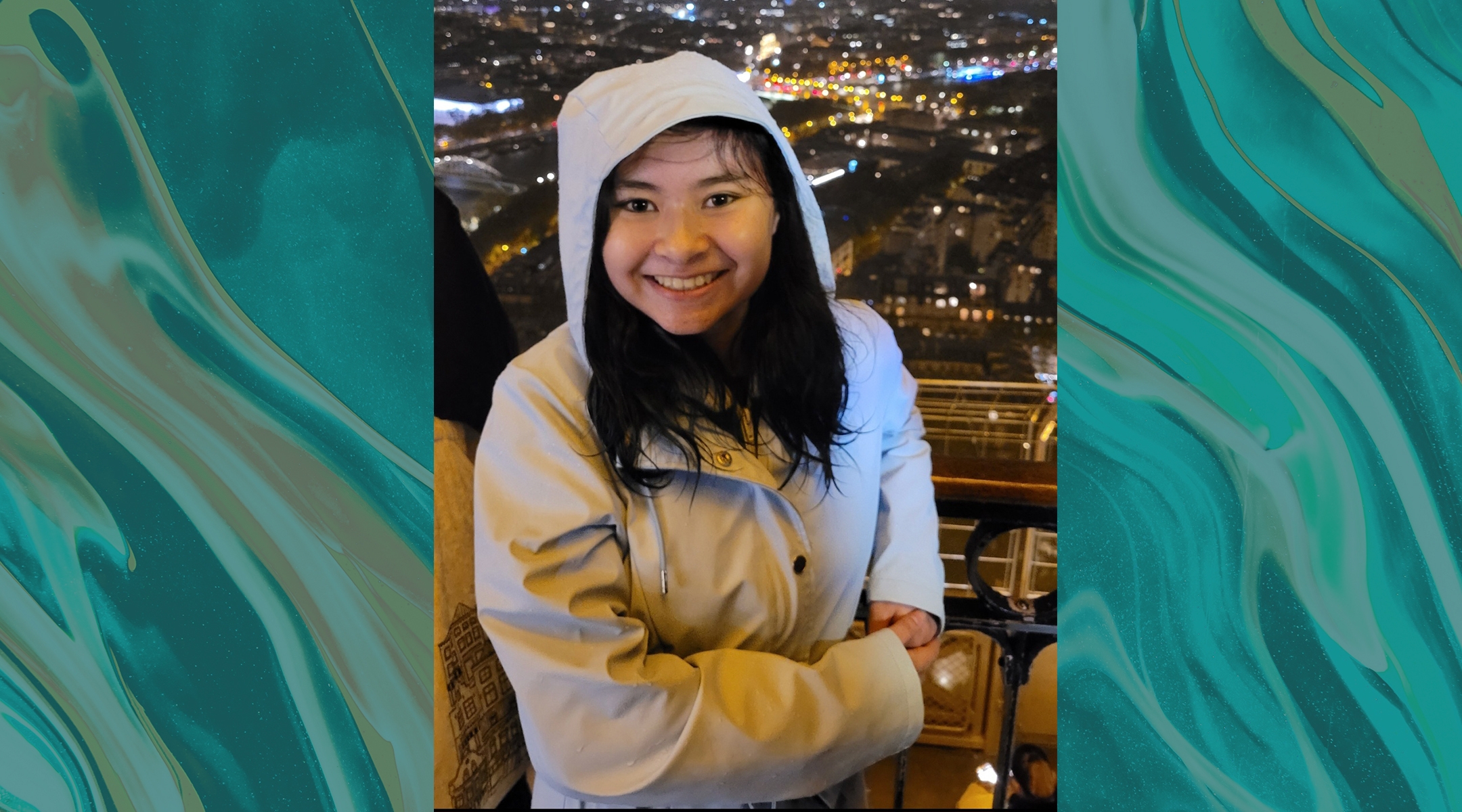
Emanuelle Kramer (Courtesy)
JTA: Overall, how do you feel about Jewish teen representation in movies?
Wolf-Dubin: In one word: bad. It’s not there. We don’t get to see the unique Jewish experience. We don’t get to see the way that we grew up, and the way that it differs from others. I’m from the deep south, and I sure don’t see it around me. I don’t get to recognize the difference in beauty in the Jewish culture in non-explicitly Jewish spaces. I want to see what my life is like going to a public school where there’s two other Jews in my grade.
Shalit: Respectfully, I disagree with that a little bit. I think that there is a lot of Jewish representation, but it’s either “LA Jews” — the Reform who “don’t do anything” and sort of reject traditional Judaism, or it’s the city kid in the shtetl who’s doing things in, almost, “the abuse narrative.” So, it exists, but it’s a constrained narrative.
Haley: There is a show that came out last year on Disney+ called “Moon Knight.” It’s a Marvel show, but there was one scene in an episode where there was a funeral and the main character is Jewish. I found it an accurate representation of something in Judaism that’s important to us, which is how a funeral is done. When someone does that right, it shows that there’s a lot of time put into that and that there’s a lot of people that want to be respectful of Judaism. I think the media is good most of the time, but I think I could see more of it.
Peckman: Based on Isaac’s point: I know in my family I see a lot from the Reform and from even Orthodox perspectives. I definitely don’t see that mix where you celebrate Shabbat, maybe, but don’t wear a skirt.
Wolf-Dubin: Has anyone seen the Netflix film “Do Revenge”? In the end, they just randomly reveal that the “rich, only cares about himself” villain is Jewish by having him wear a Jewish star. I was annoyed, because I watched the entire movie only to find out that it was just a problematic representation of Jews. I’m around people who are not Jewish a whole lot more than I’m around people who are Jewish, so it is not strange for me to see a lack of representation. With movies, it’s Christian until proven not. So, it’s not even impactful for me if I find out that a character isn’t Jewish. But, I do feel like when we see that caricature it’s immediately over for me.
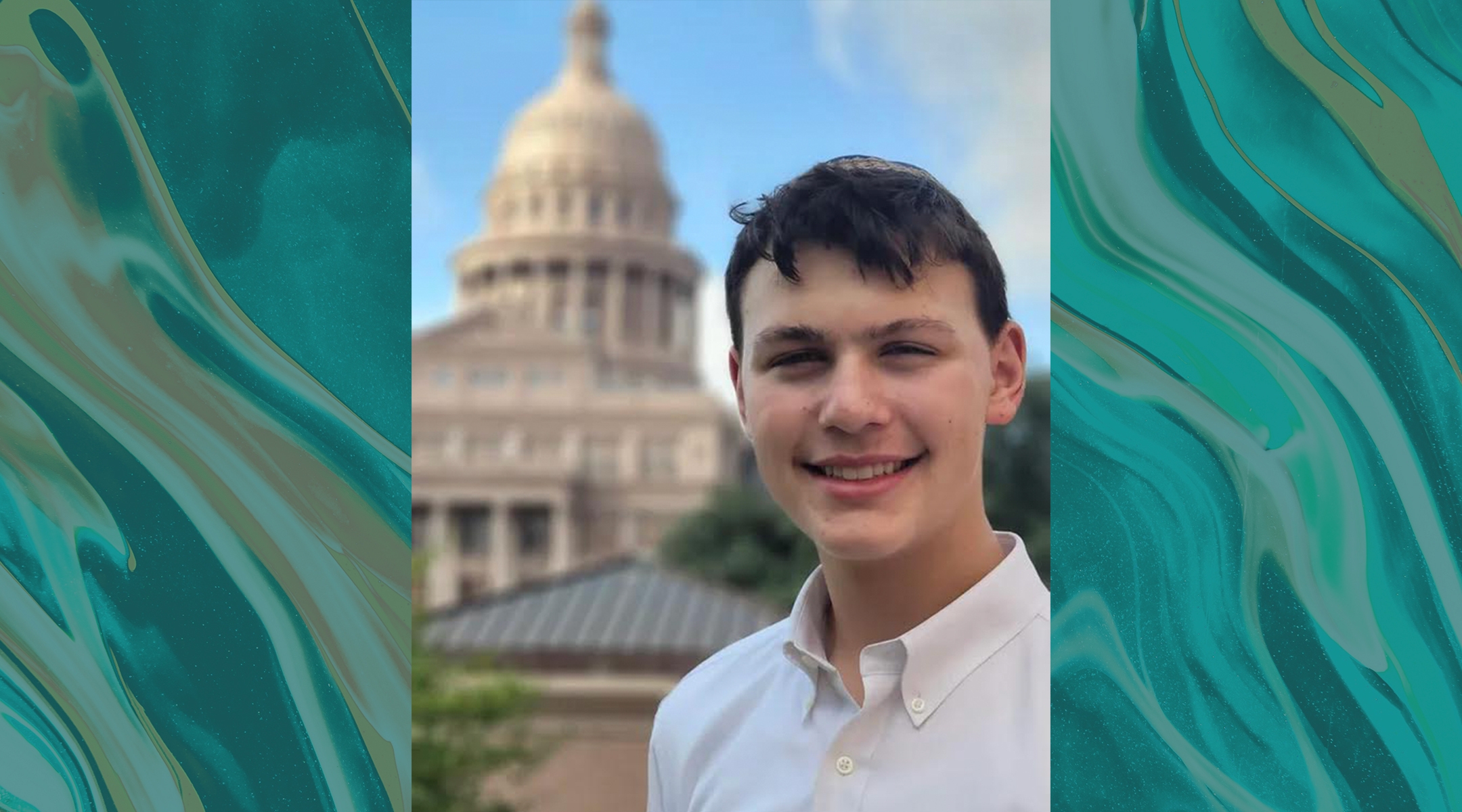
Isaac Shalit (Courtesy)
JTA: How do comedic portrayals of Jewish teens compare to dramatic portrayals?
Shalit: I would say that comedy movies have a lot more stereotypes. But their medium of communication is the joke.
Wolf-Dubin: Yeah, I absolutely agree. I do sometimes see things that come across offensive, like in “South Park” or “The Simpsons.” But if you don’t go in expecting to be offended you’re wrong.
Shalit: I think we should allow whoever is writing or whoever is producing a movie or a work to utilize stereotypes.
Wolf-Dubin: Why do you feel that way?
Shalit: I think that they need freedom and if something’s plainly antisemitic, most people are going to understand that it is. But, I don’t think there should be anything restricting.
Wolf-Dubin: I will say, I do agree and I definitely respect it. As Jews, we each get to make our decisions on that. But, I don’t feel comfortable with somebody making a joke about my heritage, about my experience if they’ve never lived it themselves. Unless again, if you’re making jokes across the board, I definitely feel like that’s different. But, if it’s targeted — looking at people like Dave Chapelle or Kanye West making comments about Jews — I just don’t feel like that’s okay. Oftentimes they’re just trying to disguise it as comedy.
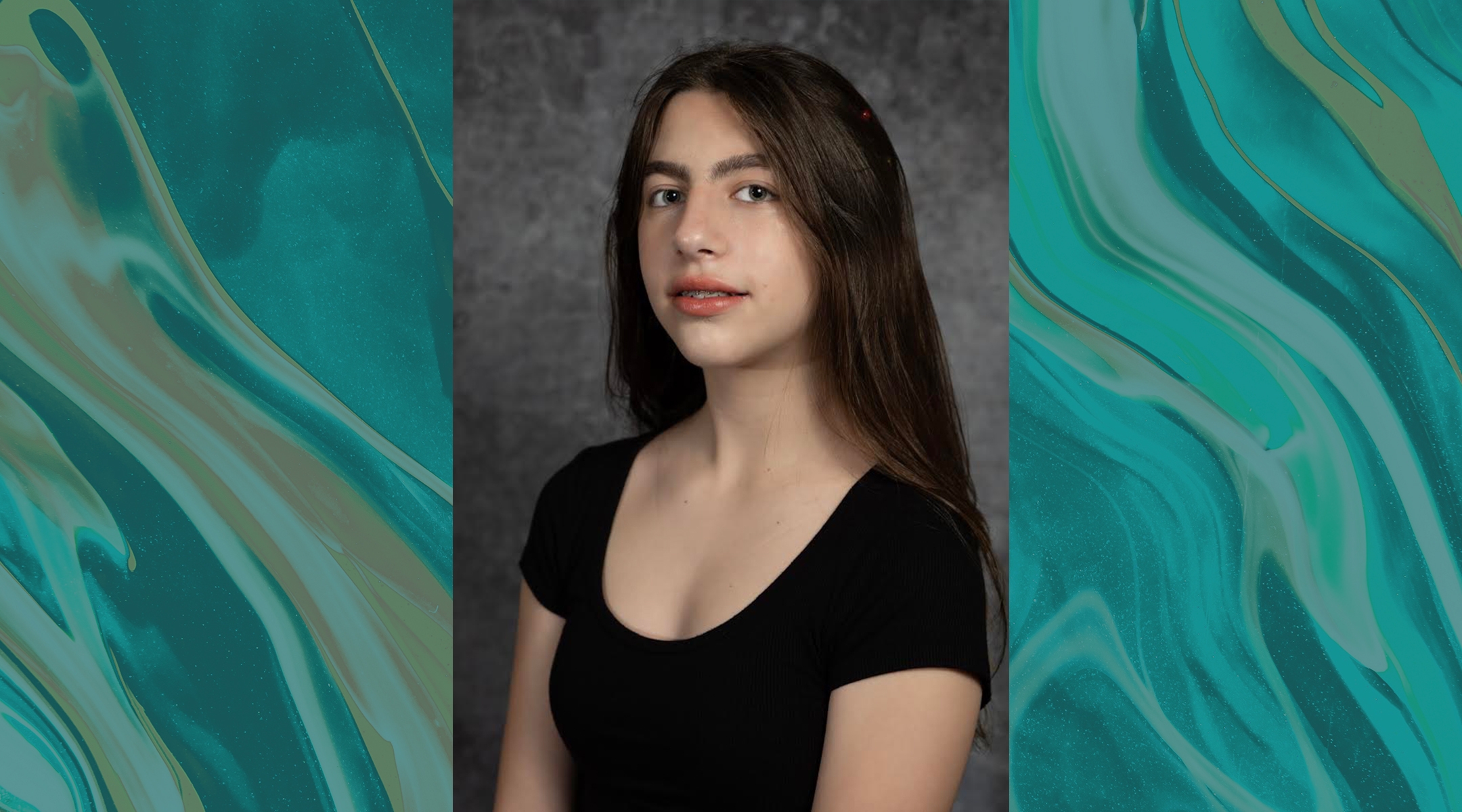
Libby Peckman (Courtesy)
JTA: Some recent films, like “You Are So Not Invited to My Bat Mitzvah” seem to have picked up traction, while others, like “The Fabelmans,” have seen less. Does the inclusion of a Jewish teen in a film change your interest in seeing it?
Peckman: It’s a film that has “bat mitzvah” in the title, so it sounds like something I might be interested in. It’s not the best movie I’ve seen. The Jewish portrayal was definitely Reform. I think that’s the first movie where I saw Reform Judaism.
Peckman: I want to comment on the movie “13: The Musical.” I’m a musical fan, personally. I thought it was interesting how it had a unique perspective, because there’s all different types of Jews portrayed.
Shalit: “The Fabelmans” is a movie about Jewish teens, but It’s about Jewish teens in the 1950s. If you’re looking at Jewish teen representation today, “The Fabelmans” isn’t doing much because it’s a historical piece.
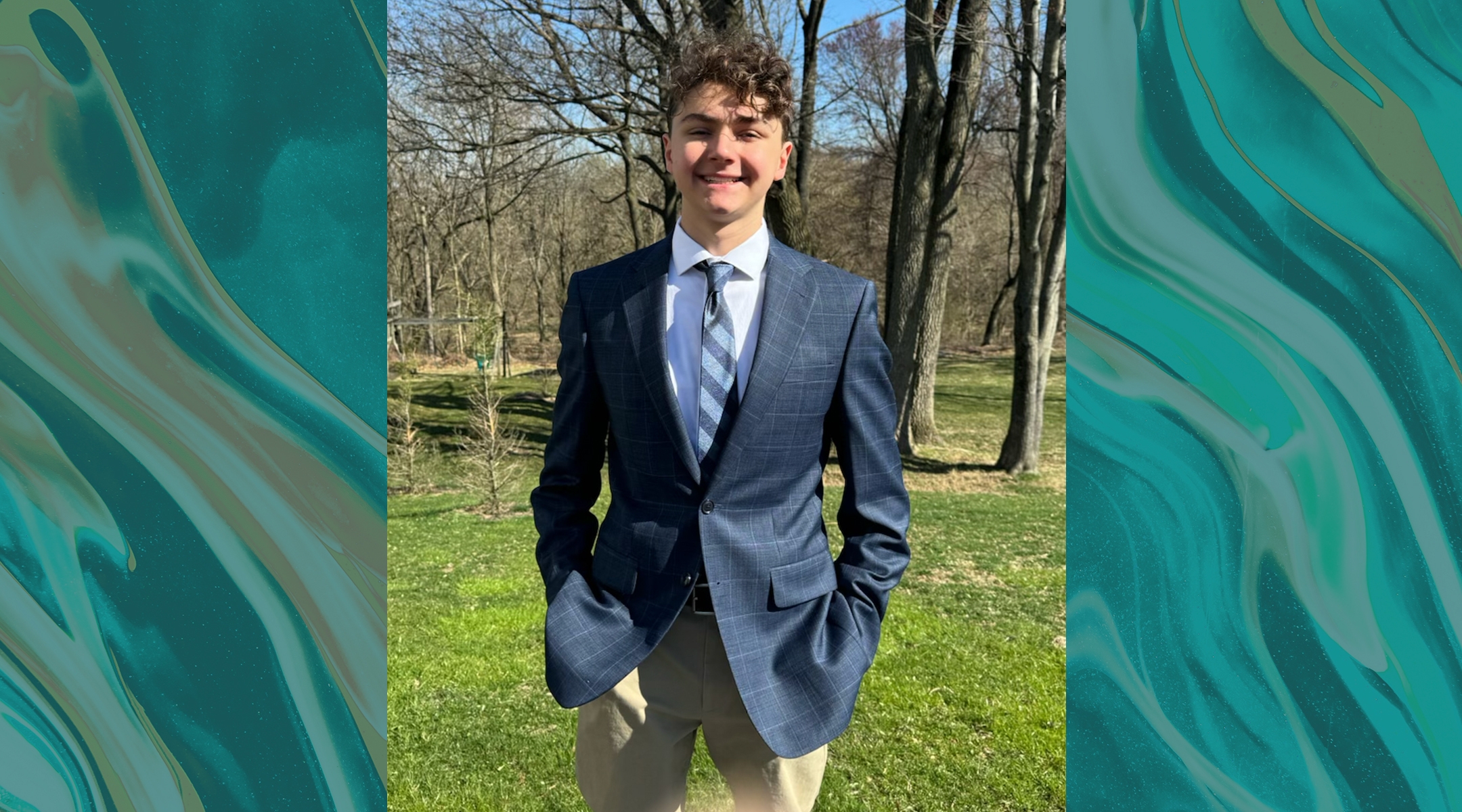
Davin Haley (Courtesy)
What would you consider the most antisemitic movie you have watched?
Haley: I don’t think there are many. I haven’t seen any forms of media where it’s unintentional, or where it’s just a complete and accurate representation. Usually, [writers] just don’t know what they’re talking about.
Wolf-Dubin: I just wanna reiterate that I feel like the antisemitism we’re seeing in the media emboldens antisemites to come out and say things like that in real life to our faces. In Nashville, we had neo-Nazis walking around recently. They didn’t necessarily do that because they saw a movie, but when you see 20 movies depicting Jews poorly that makes them think it’s okay and emboldens them. We’re at an age of a rise of antisemitism, and if we’re unwilling to acknowledge that it starts in the media, then I think we’ve got another thing coming.
Haley: There’s gotta be a fine line between being a villain and you’re Jewish, which is fine, but then also being a villain because you’re Jewish, which is what some people have written in, unfortunately, which just kind of stinks.
JTA has documented Jewish history in real-time for over a century. Keep our journalism strong by joining us in supporting independent, award-winning reporting.
